The Mirror:
Stories of Impact
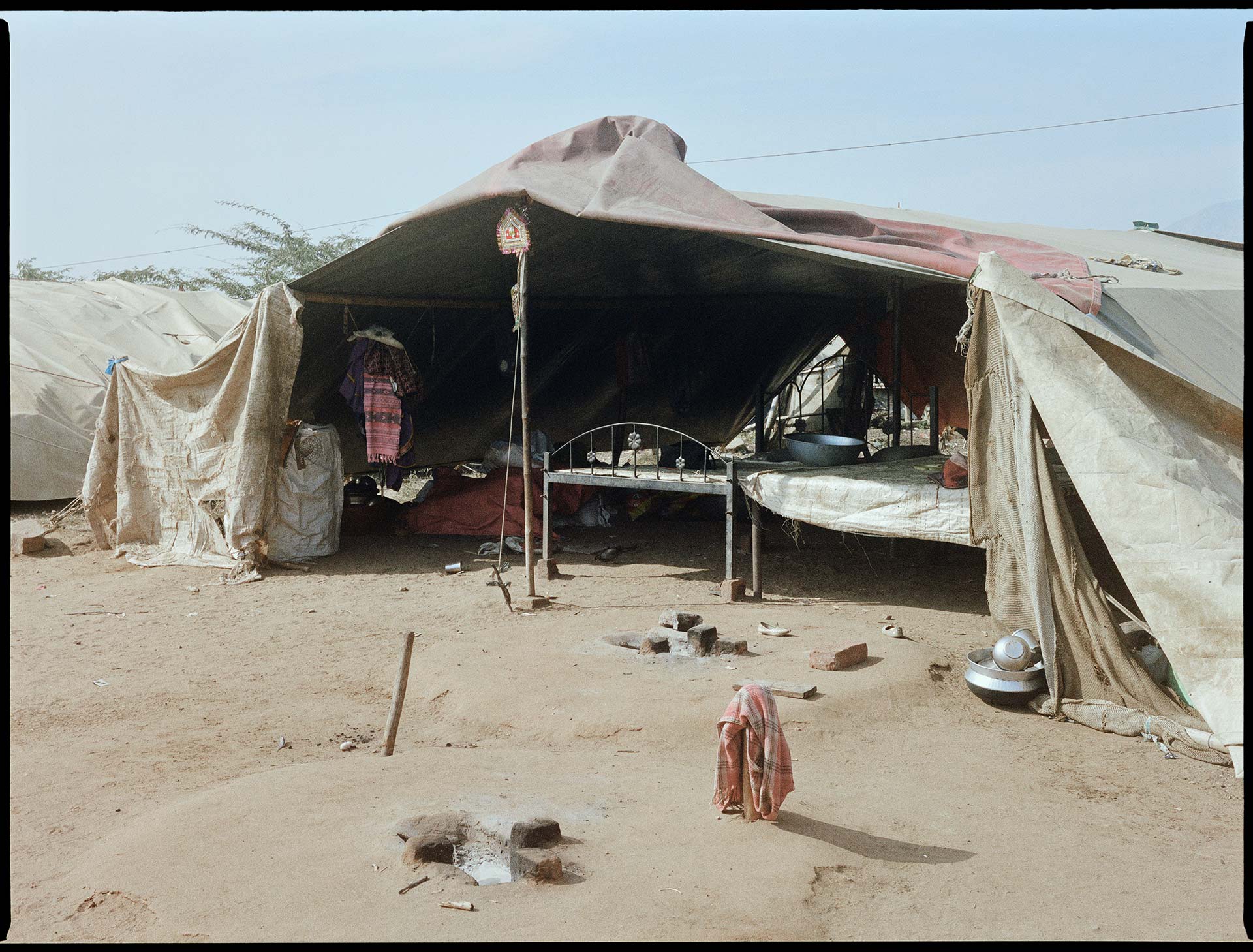
Photography
Raquel Vieira da Silva
Raquel Vieira da Silva
Community Partner
RSKS India
RSKS India
In a recent interview with PWB, I have discussed what it means to be a documentary photographer and explored how community building is the foundation of empathy.
︎︎︎
Read the interview
‘Last week I killed seven snakes.
I sleep on the ground.
I want a place where I can sleep
without being afraid.’
Deepa, 45, mother of seven
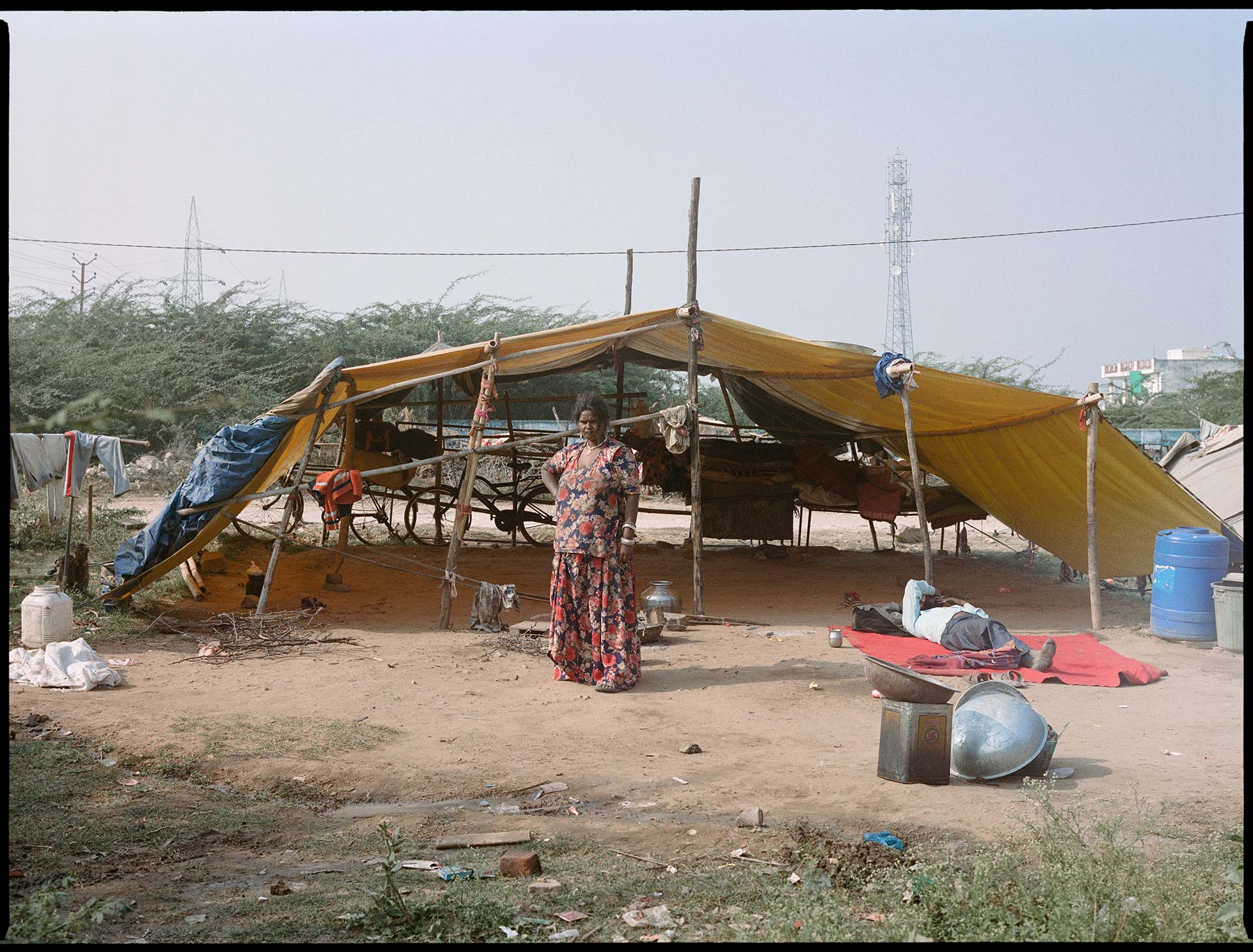
‘I sleep on the ground – last week I killed seven snakes.’ It sounds extraordinary, but Deepa’s story is not uncommon in India. She sleeps near a highway with her husband and seven children. The family live in danger of animal attacks, infectious diseases and car crashes. No money means no roof for shelter. In winter, it’s hard to keep warm and Deepa sacrifices her clothing for her children. She longs for water, electricity, paid work and education for her daughters.
‘I want a roof above my head and a land of my own. I want electricity, water, a job for my husband and one for me too. So that I can raise my seven daughters and give them a proper education.’
Deepa, 45, mother of seven
‘We are living near a highway and because of that we are always in fear that a car or a truck will come inside our house and kill us.
I feel ashamed when I am bathing in the public and my daughters feel the same too.
I want a shelter because everyday, animals, snakes, scorpios, spiders and other insects are coming into our house. And this is why we always fear them, because they can kill us too. Last week I killed seven snakes. I sleep on the ground and I don’t have a bed and because of that I am always afraid of snakes. I want a place where I can sleep without being afraid.’
I want a shelter because everyday, animals, snakes, scorpios, spiders and other insects are coming into our house. And this is why we always fear them, because they can kill us too. Last week I killed seven snakes. I sleep on the ground and I don’t have a bed and because of that I am always afraid of snakes. I want a place where I can sleep without being afraid.’


‘In the Winter, my children don’t have enough clothes to wear so RSKS team members come to our slum every month to provide us with clothes, something to eat, and also educate us to live with discipline. They help us build our huts with canvas that they provide and also mosquito nets to prevent the spread of malaria.’ Deepa

This was one of the stories that I heard from the people of Rajasthan when travelling to Northern India in December 2019 with Photographers Without Borders (PWB) and Rajasthan Samgrah Kalyan Sansthan (RSKS India).
Roughly a quarter of India’s population are affected by poverty, discrimination, illiteracy and domestic violence. Caste terrorism, or the inhuman treatment of societal group deemed lesser by heritage, and violence against women are everyday realities. Across Rajasthan, many thousands of cases are reported every year, including an average of nine dowry-deaths every week, and ten cases of rape each day. Worryingly, these numbers merely reflect registered cases, with many more going unreported.
Through a combination of inactivity and wilful ignorance, society allows this oppression to perpetuate. In photographically documenting the people I seek to capture their humanity, grace and defiance. My images celebrate the colour and life I saw in moments of happiness and pain. A meaningful glance or a simple gesture shows us the irrepressible nature of the human spirit.
Roughly a quarter of India’s population are affected by poverty, discrimination, illiteracy and domestic violence. Caste terrorism, or the inhuman treatment of societal group deemed lesser by heritage, and violence against women are everyday realities. Across Rajasthan, many thousands of cases are reported every year, including an average of nine dowry-deaths every week, and ten cases of rape each day. Worryingly, these numbers merely reflect registered cases, with many more going unreported.
Through a combination of inactivity and wilful ignorance, society allows this oppression to perpetuate. In photographically documenting the people I seek to capture their humanity, grace and defiance. My images celebrate the colour and life I saw in moments of happiness and pain. A meaningful glance or a simple gesture shows us the irrepressible nature of the human spirit.
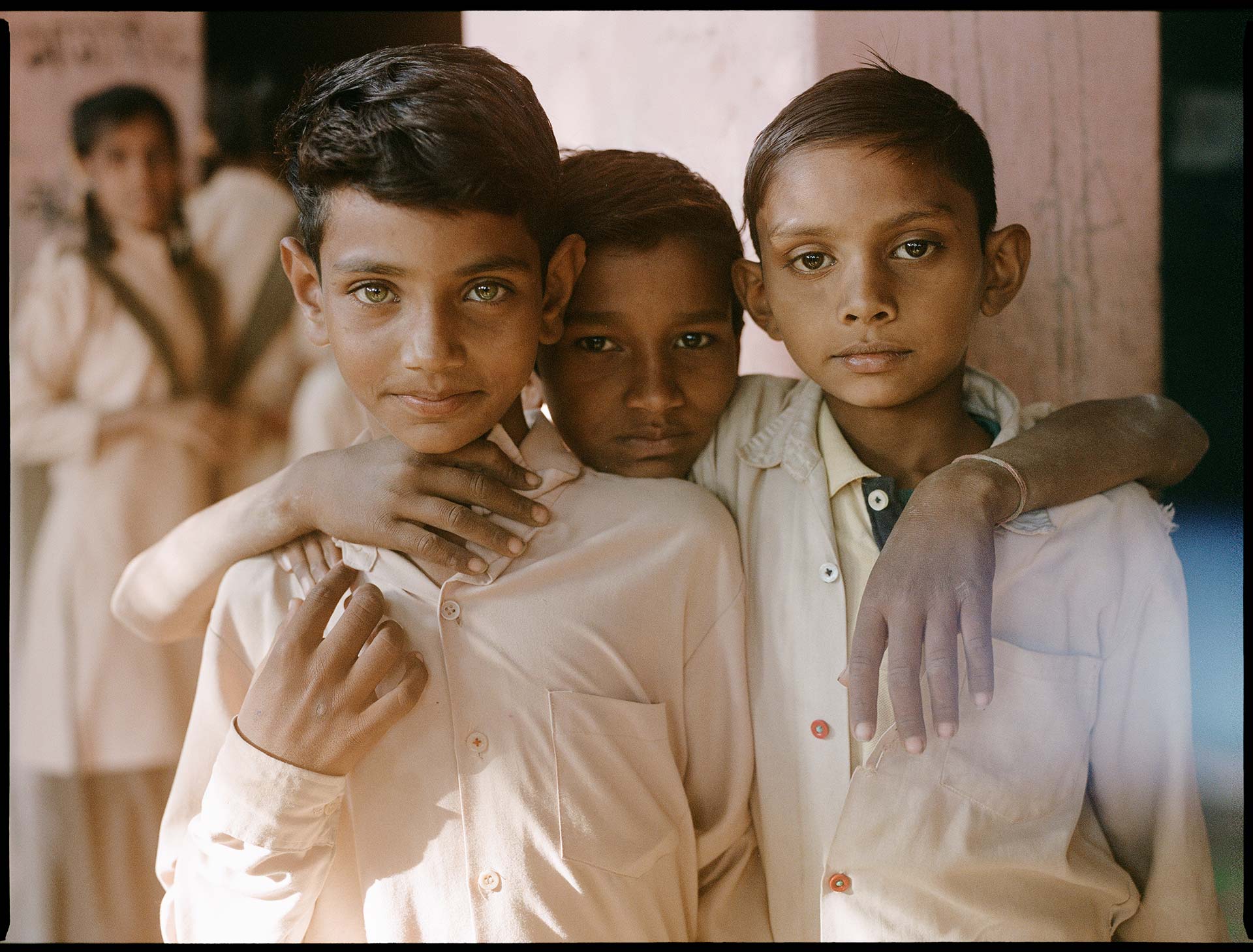
I want to stand with my subjects, learn about their stories and amplify them in objective and honest photojournalistic work. In doing so, we can fight oppression and help people regain their rights.
RSKS Make a Wish Project for Street and Slum Kids
•
RSKS has been working with this village for the past three years.
In this village, there are around 150 people and some of them have been living at this location for the past 7 years. As the people from slum areas do not have a physical house by any means, this means they often move in and out of a particular location and their houses move with them. They can never rely on being in just one place.
After the introduction to the ngo, the children learnt the importance of discipline and group behaviour and how to help and support each other. RSKS also creates activities for the children in which they learn how to be a better person as well as fully paying the children’s school fees. The children are also taught the importance of hygiene and grooming so they can succeed and find their respectful place in society and help society be more inclusive towards them.

‘We have been in this same place for 150 years. Our ancestors lived and died here. For work, we walk 50 km to sell spices, whilst our children stay back at the slum, taking care of each other.’
Bala, 25
 Radhika, 23 (on the left) and Bala, 25 (on the right)
Radhika, 23 (on the left) and Bala, 25 (on the right)
‘In this slum area we don't have electricity nor access to clean water. We do not have money to buy new clothes so instead, we wear someone's used clothes which are left out on the roads.’
We want a place where we can live without fear. We want good jobs for our children, so they can see something different from what we will ever see.’
We want a place where we can live without fear. We want good jobs for our children, so they can see something different from what we will ever see.’

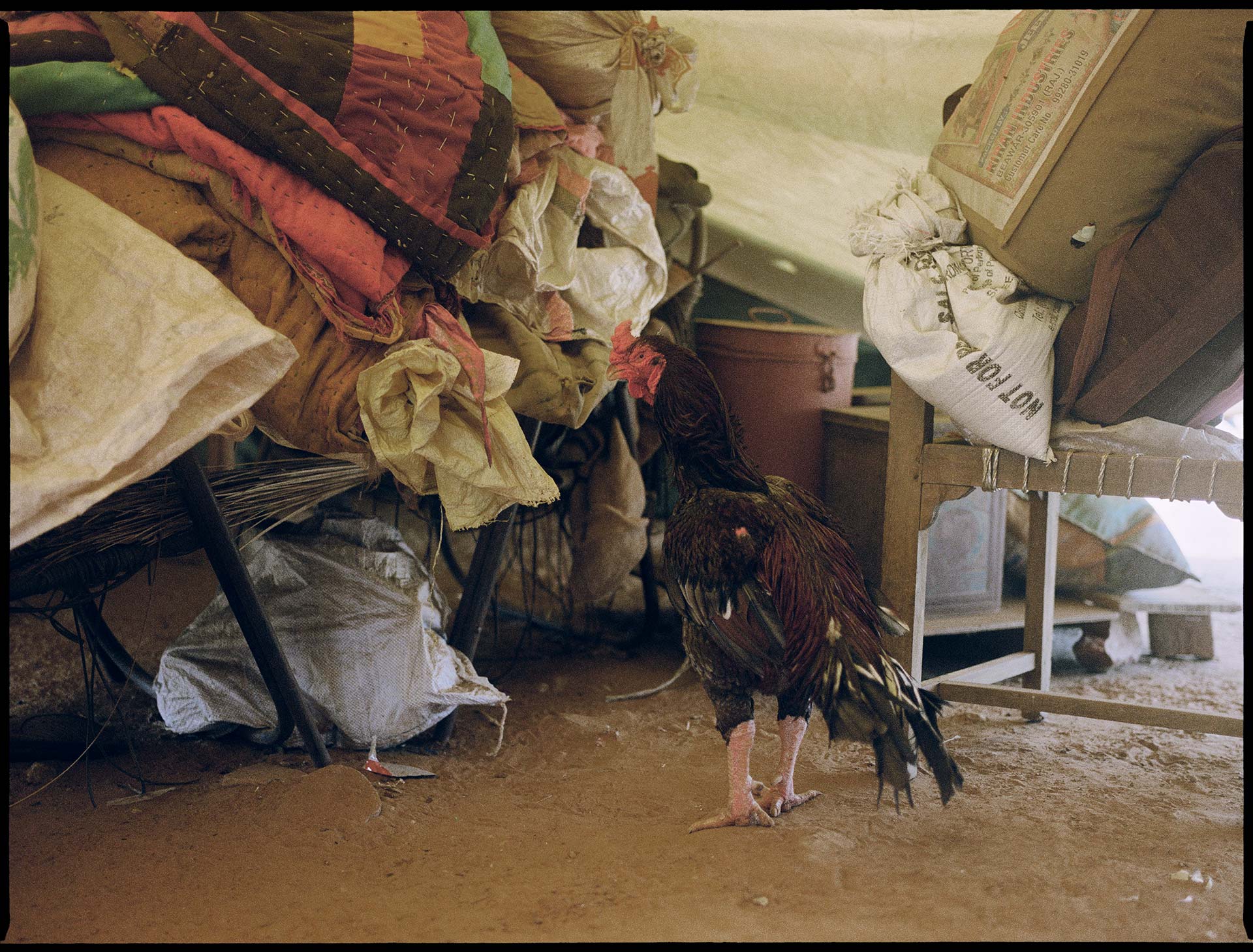
‘We live in the dark and in fear of death because we live in a place where any kind of deadly animals, such as snakes and scorpios, can enter. We are always worried for our children.’
‘I have many dreams but I cannot fulfill them in my entire life. I don’t have anything in my hand, except this hut and my baby. My whole world is this baby.’
Prianka, 19
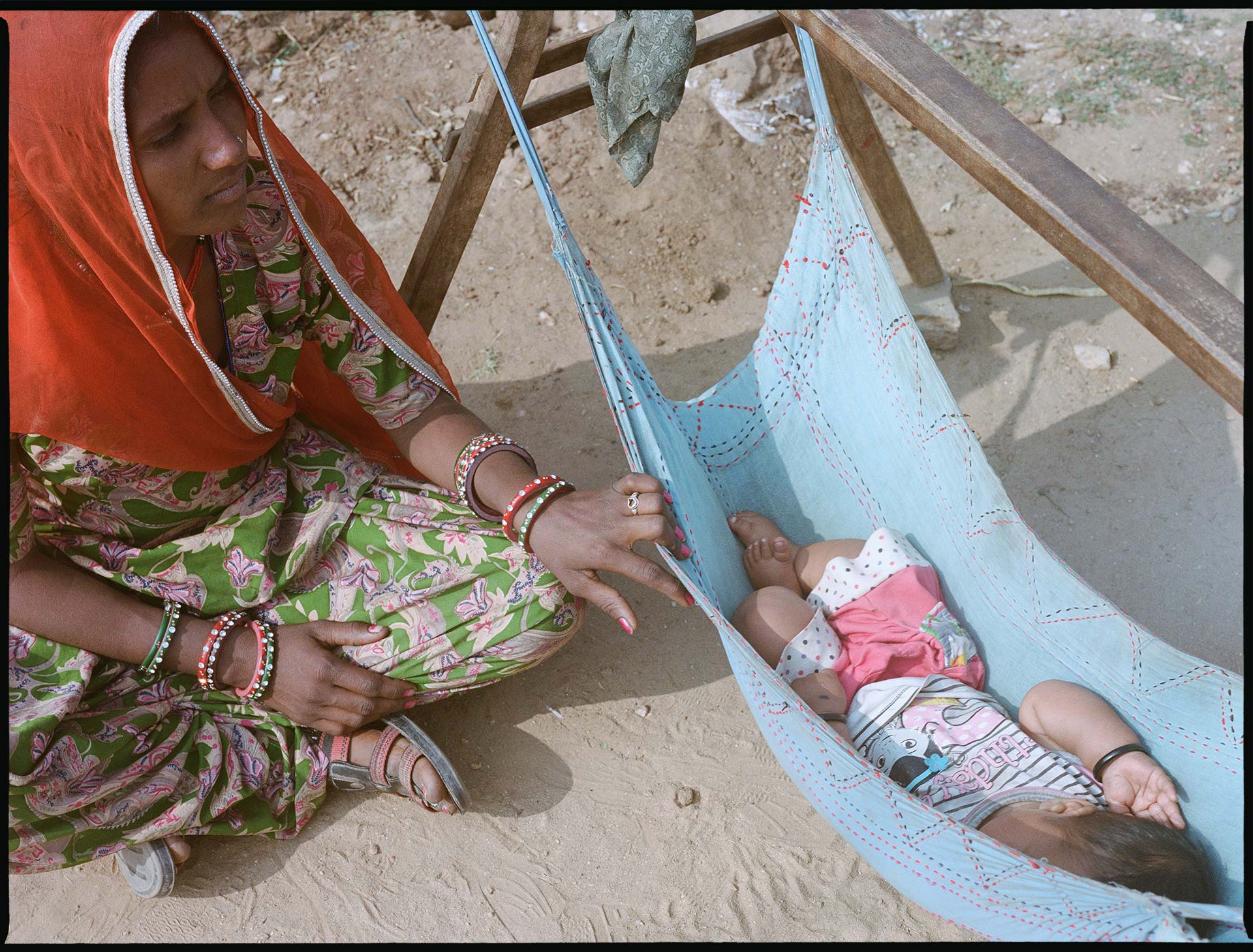 Prianka is 19 and mother of a 3 month old baby. Her husband sells utensils whilst she stays at home looking after her child and cooking all the meals.
Prianka is 19 and mother of a 3 month old baby. Her husband sells utensils whilst she stays at home looking after her child and cooking all the meals.

I am lucky to have a dog now so I can save my baby. Previously, we had no dog to save us. At that time, snakes and other animals would come inside our house.
‘I am always sick because I am always cold. My hut is not covered so I have to cover my small baby with my own body. Whenever my child cries, I have to go feed her. Because of this I cannot take care of my house properly. My husband doesn’t earn much, which is why we often cannot afford proper meals. Because of this, my husband is often sick, and so we don’t make any money so we are always poor.’
‘I am always sick because I am always cold. My hut is not covered so I have to cover my small baby with my own body. Whenever my child cries, I have to go feed her. Because of this I cannot take care of my house properly. My husband doesn’t earn much, which is why we often cannot afford proper meals. Because of this, my husband is often sick, and so we don’t make any money so we are always poor.’
‘I want to study and children like me need to study, so we can grow and prosper together.
We are poor, but it is important that we try. Because if we die poor without trying, it will be all our fault.’
Kanta, 10
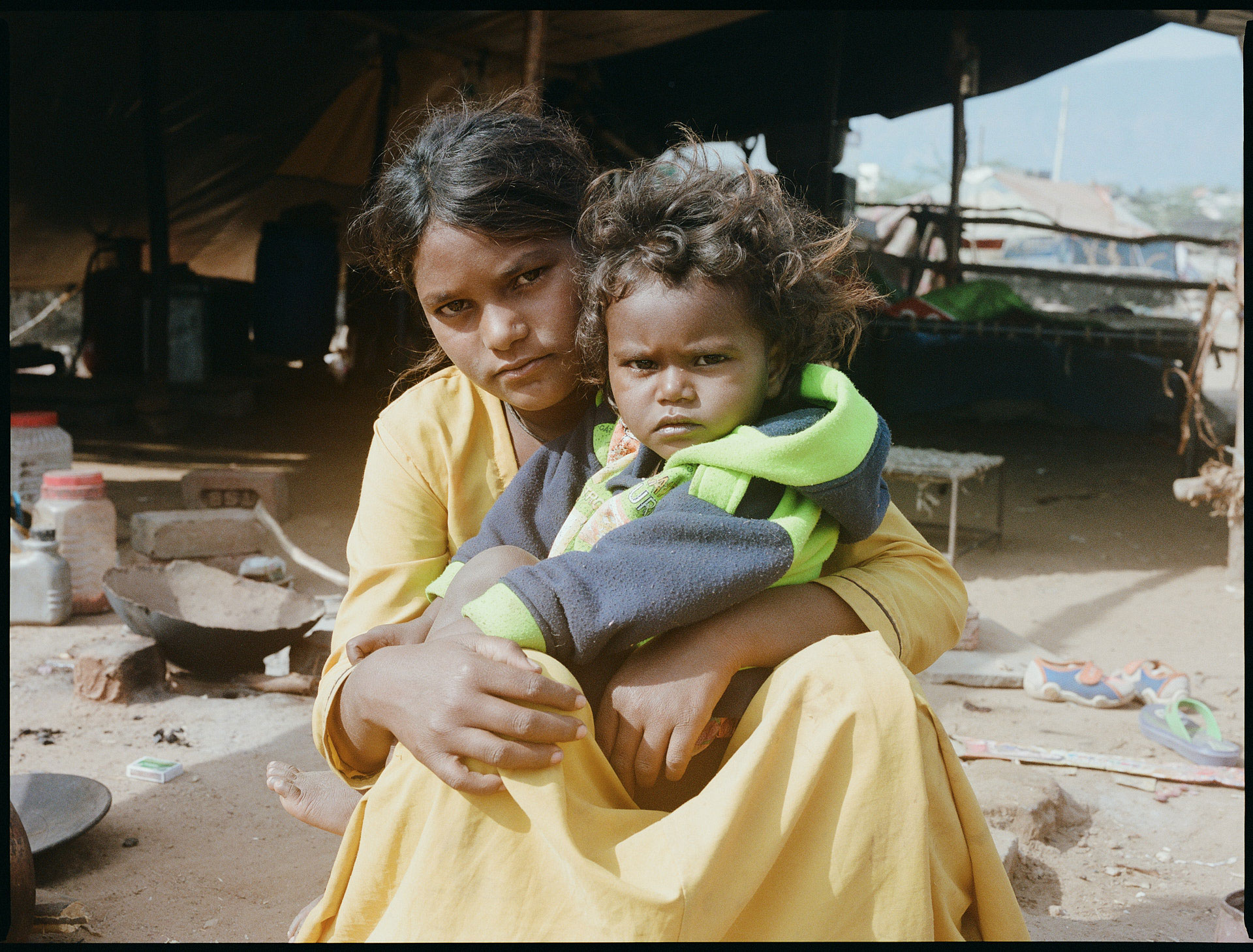
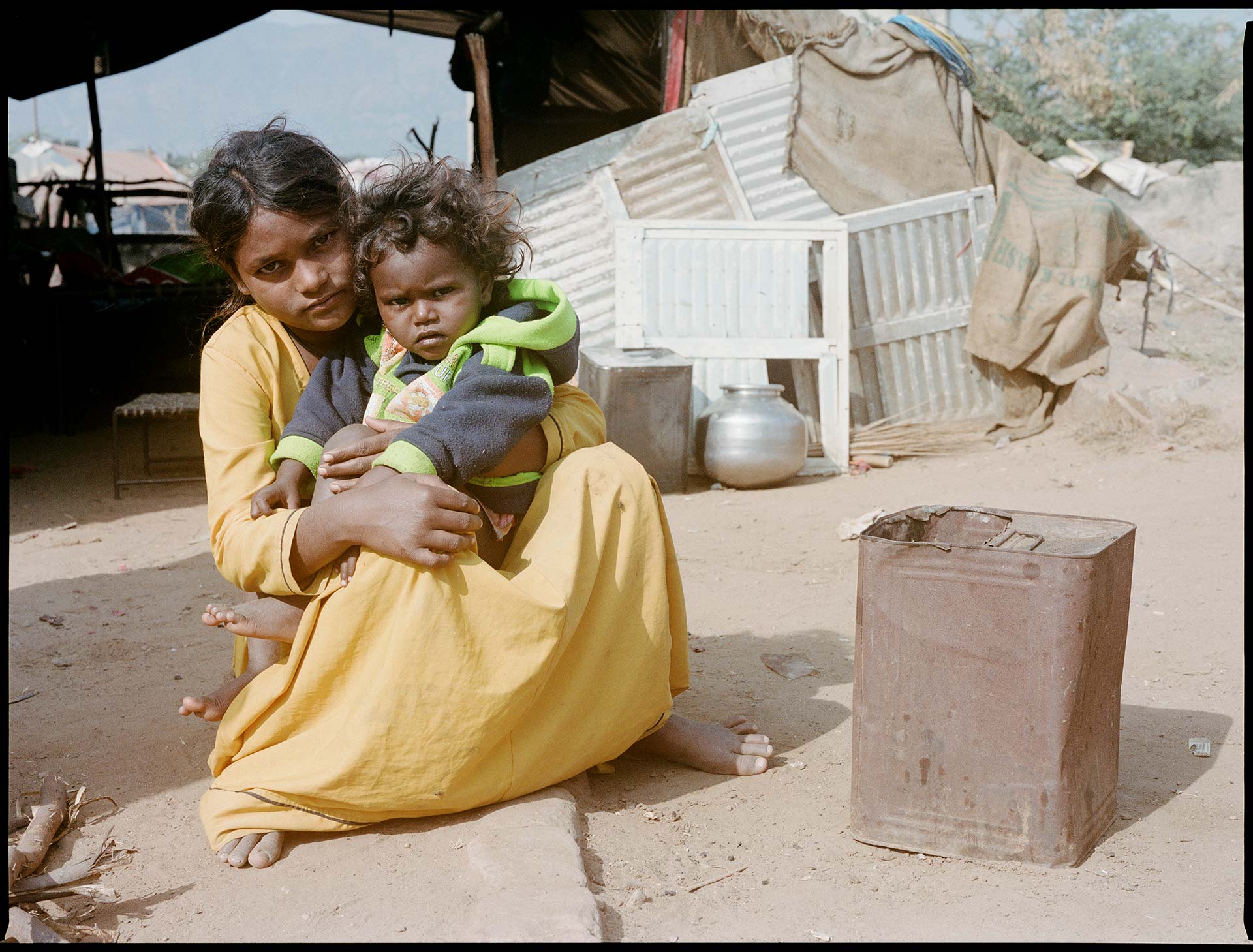
Pinki is 12 years old and lives in a slum community together with her parents and her 1.5 year old brother. Pinki’s dream is to be able to go to school, unfortunately she cannot. Her family is extremely poor, therefore whilst they are at out, working and looking for food, Pinki has to stay home looking after her brother. One day, with the help of the humanitarian association (RSKS India), she will be going to school, something she so much desires. Pinki wants to help people like her, by alleviating poverty and illiteracy.
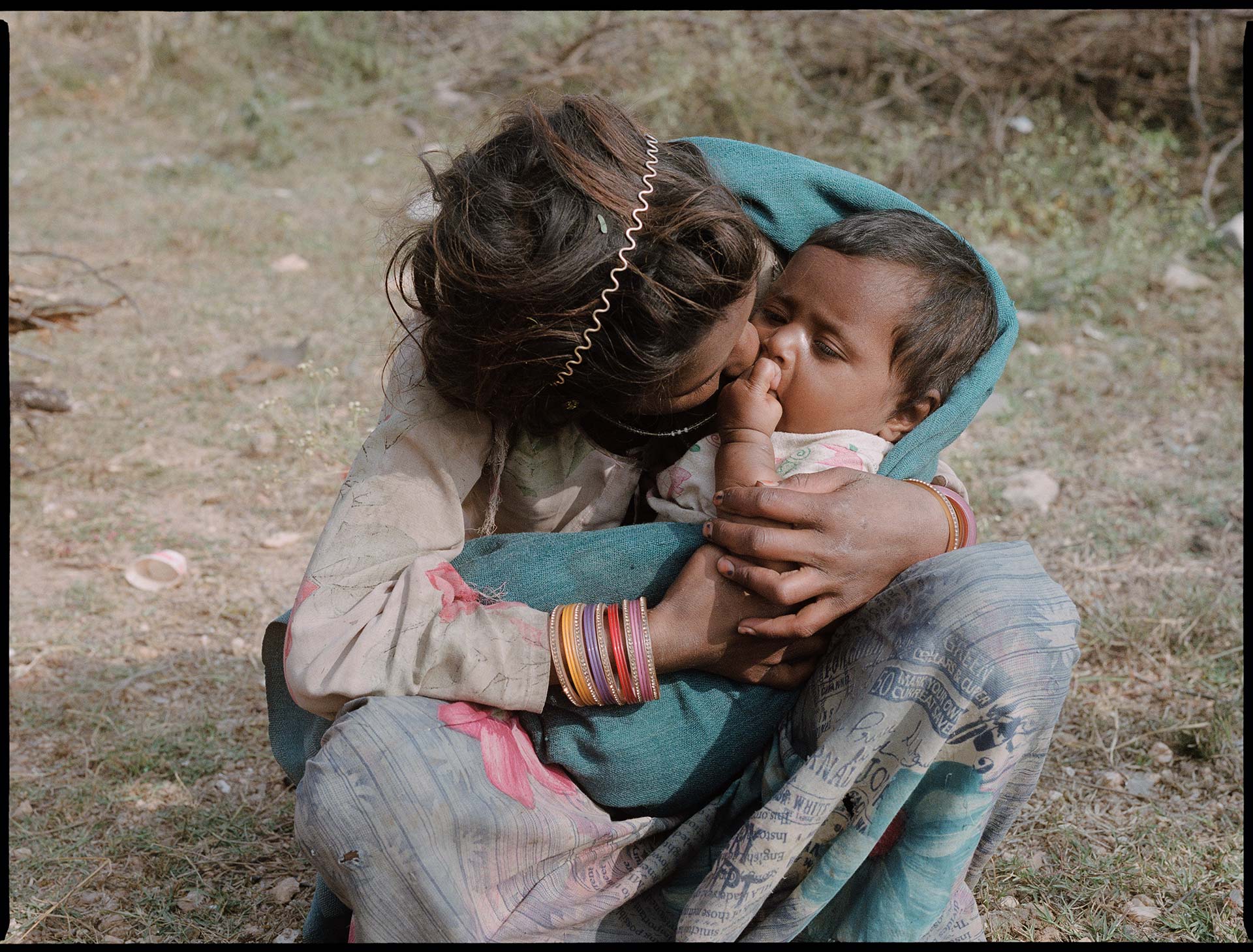 Leena and her sister Aishwarya
Leena and her sister AishwaryaLeena is nine years. Her father earns his living by buying and selling utensils in the local market, while Leena’s mother spends the days collecting wood for the family, so they can use it to cook food and keep warm at night. When you live, eat and work outside, heat becomes the family’s primary focus. But Leena has a bigger job in hands: soothing and taking care of her little sister like she is her own.
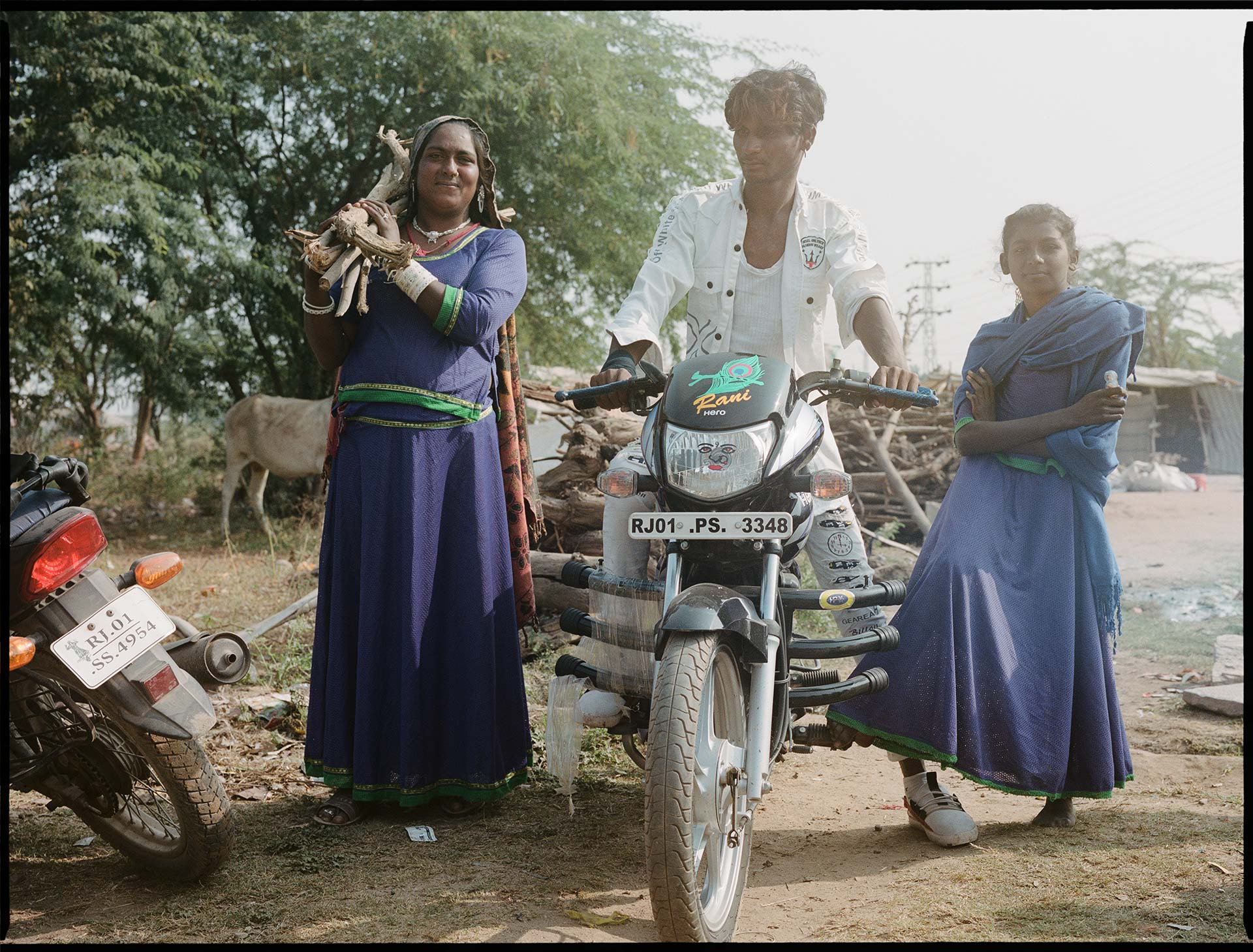
When RSKS team first came in contact with this slum community, they mainly focused their efforts on behavioral change. By providing counselling sessions, they helped the male members of the community to recognise their alcoholism problem and how their physical and verbal violence was a violation of human rights and detrimental to their community and own families.
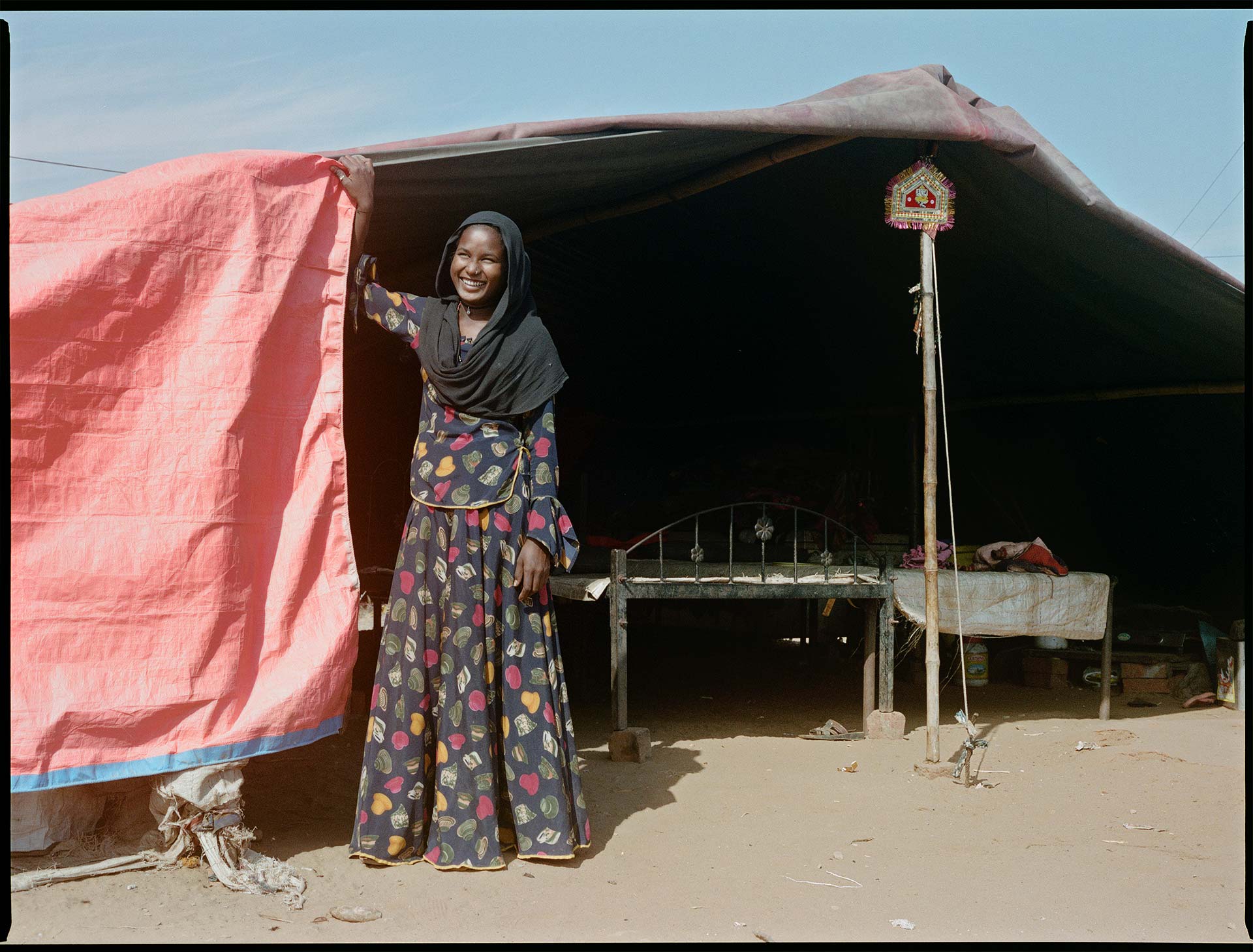 Aish is 17 years old. Her parents have been living in this community for the past twenty years, working as labourers and selling coconuts for a living. Aish cooks for her family and works as a labourer in order to provide for her family. When she returns from work, at 4 in the afternoon, she helps raise her two sisters and five brothers. While they are fortunate in going to school, she hasn’t been so lucky.
Aish is 17 years old. Her parents have been living in this community for the past twenty years, working as labourers and selling coconuts for a living. Aish cooks for her family and works as a labourer in order to provide for her family. When she returns from work, at 4 in the afternoon, she helps raise her two sisters and five brothers. While they are fortunate in going to school, she hasn’t been so lucky.RSKS Women Self-help Group, Village 1
•
•
In a very poor and remote village in Ajmer – Rajasthan, ten women belonging to a small community, get together every week, to talk about their financial difficulties. The members of this community have been living here for more than 30 years, together with their families. Their husbands work during the day by cleaning restaurants and people’s homes. They also make bamboo baskets which they sell at their local village market.
RSKS came to this village to promote activities that teach women how to be financially stable, how to open a bank account and take on small loans with low interest rates. With RSKS as their sponsor, they can fund and start new businesses or invest in agriculture.
Self-help groups improve the communication between community members and teach them how to be self reliant and independent entrepreneurs.
RSKS came to this village to promote activities that teach women how to be financially stable, how to open a bank account and take on small loans with low interest rates. With RSKS as their sponsor, they can fund and start new businesses or invest in agriculture.
Self-help groups improve the communication between community members and teach them how to be self reliant and independent entrepreneurs.
‘When you are part of a community, anything is possible. I believe everything can and will happen, but this will be a very slow process. Never demand big things, only demand things which are essential for your survival.’
Janta, 40, married to Deepak, 35
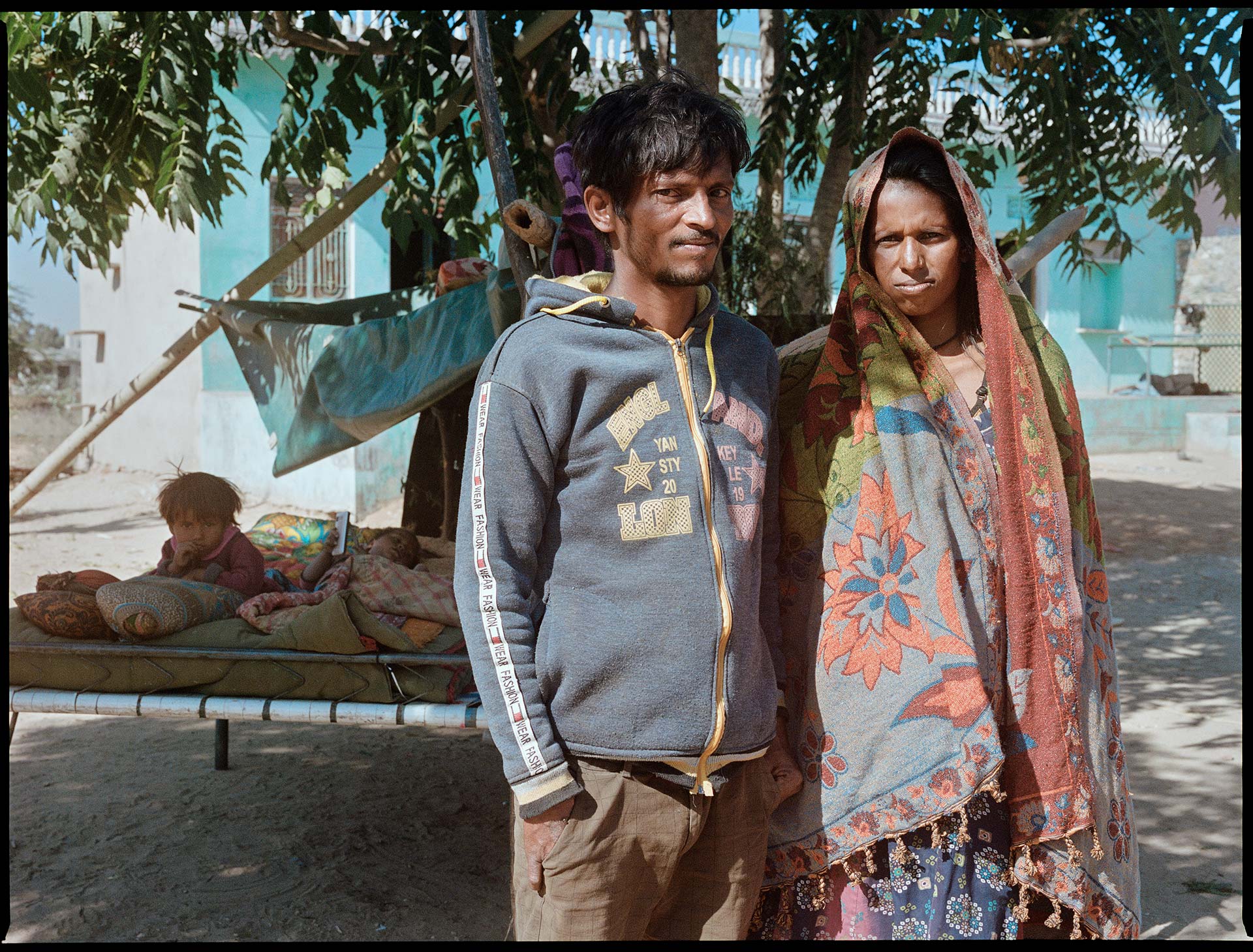
A family and their home, in one single frame.
‘Whenever one of us is sick, the rest of the group helps cover for his or her expenses.
But if we are struggling to survive, how can we help others too? ‘
Janta, 40, married to Deepak, 35

‘Me and my husband make bamboo baskets to earn for our livelihood.’
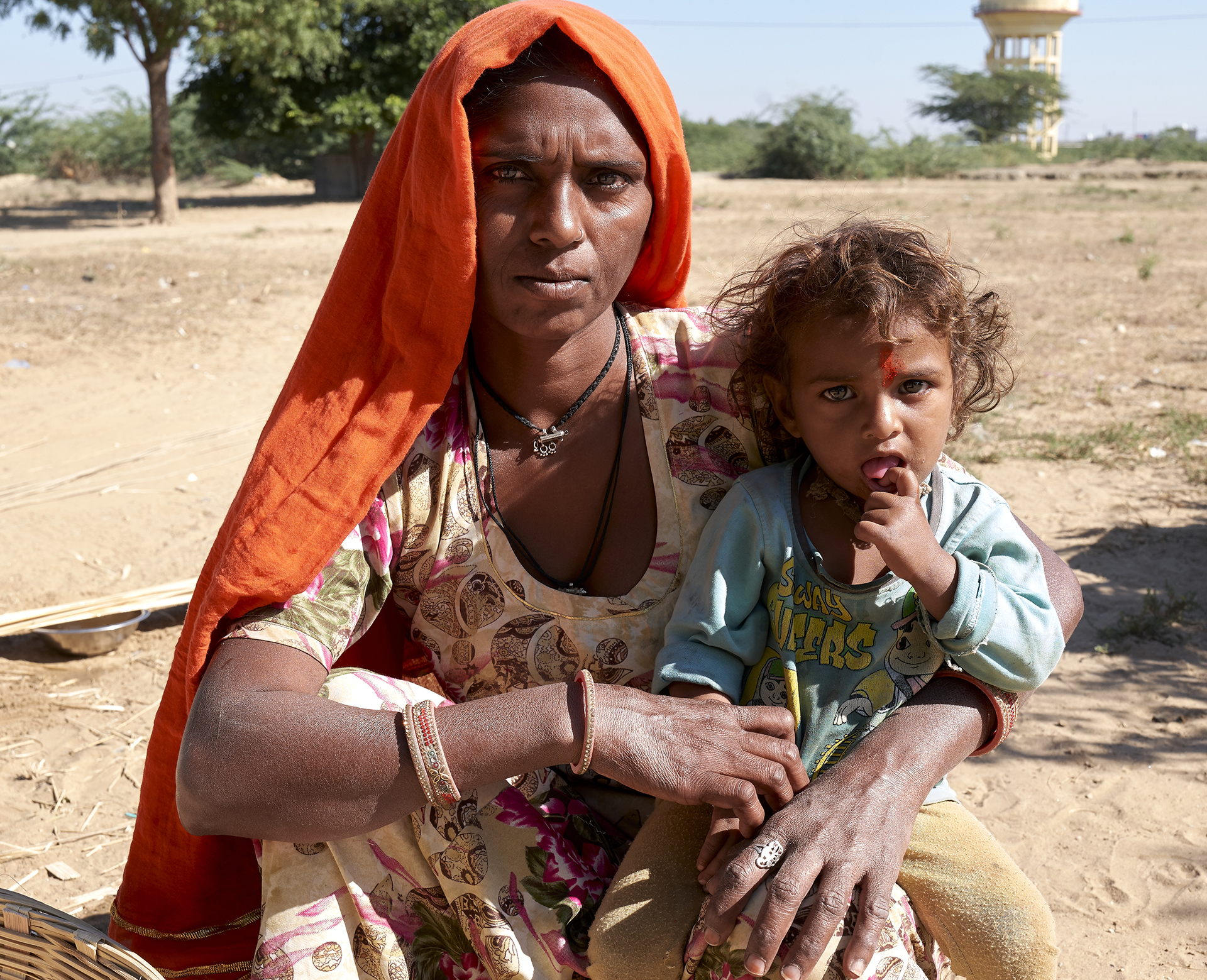
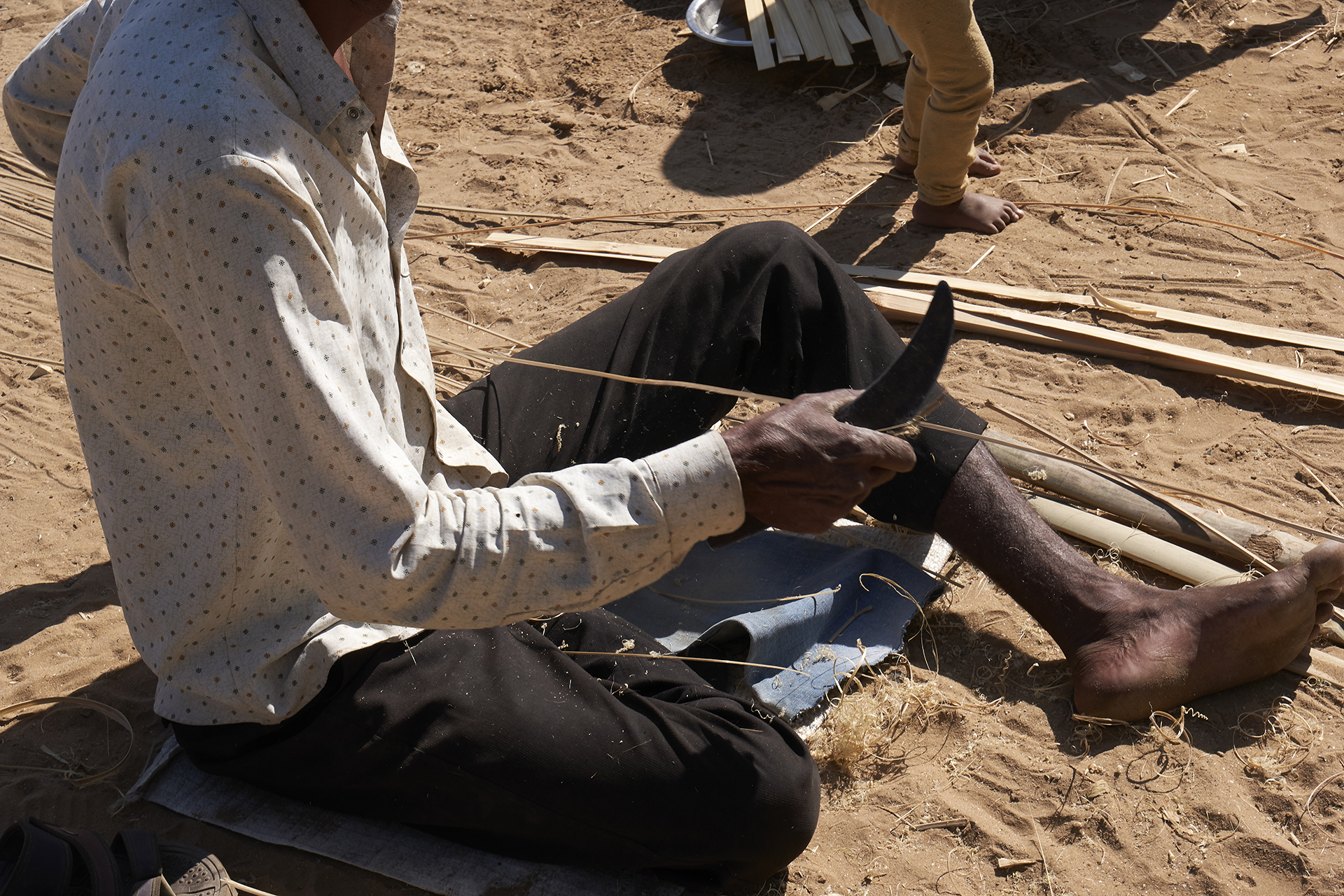
‘With RSKS’ financial help, we are able to take on loans and make more baskets, which in turn helps us with our children’s education.’
‘One bamboo costs us 200 rupees and from that we can make two big baskets, which is then sold for 250 rupees each making a profit of 300 rupees. Our problem is that we are not able to make them in large quantities and it takes 2-3 days to sell them.
 Shyam, 48, suffers from pneumonia
Shyam, 48, suffers from pneumoniaWhen I met Shyam, 48 he was very fragile and his son and daughter in law helped him stand up to meet me at his doorstep. Shyam has been suffering from diarrhea for the last 4 months and also was diagnosticated with pneumonia. His daughter in law explained he is very weak but has no means to treat himself as he needs 50,000 rupees to cover his medical expenses. They told me I could come and see their home but explained they have nothing inside. With no electricity, no water, no medicine and no means to keep himself warm and disease free, it was clear in his eyes that without help, everyone was just waiting for him to die.
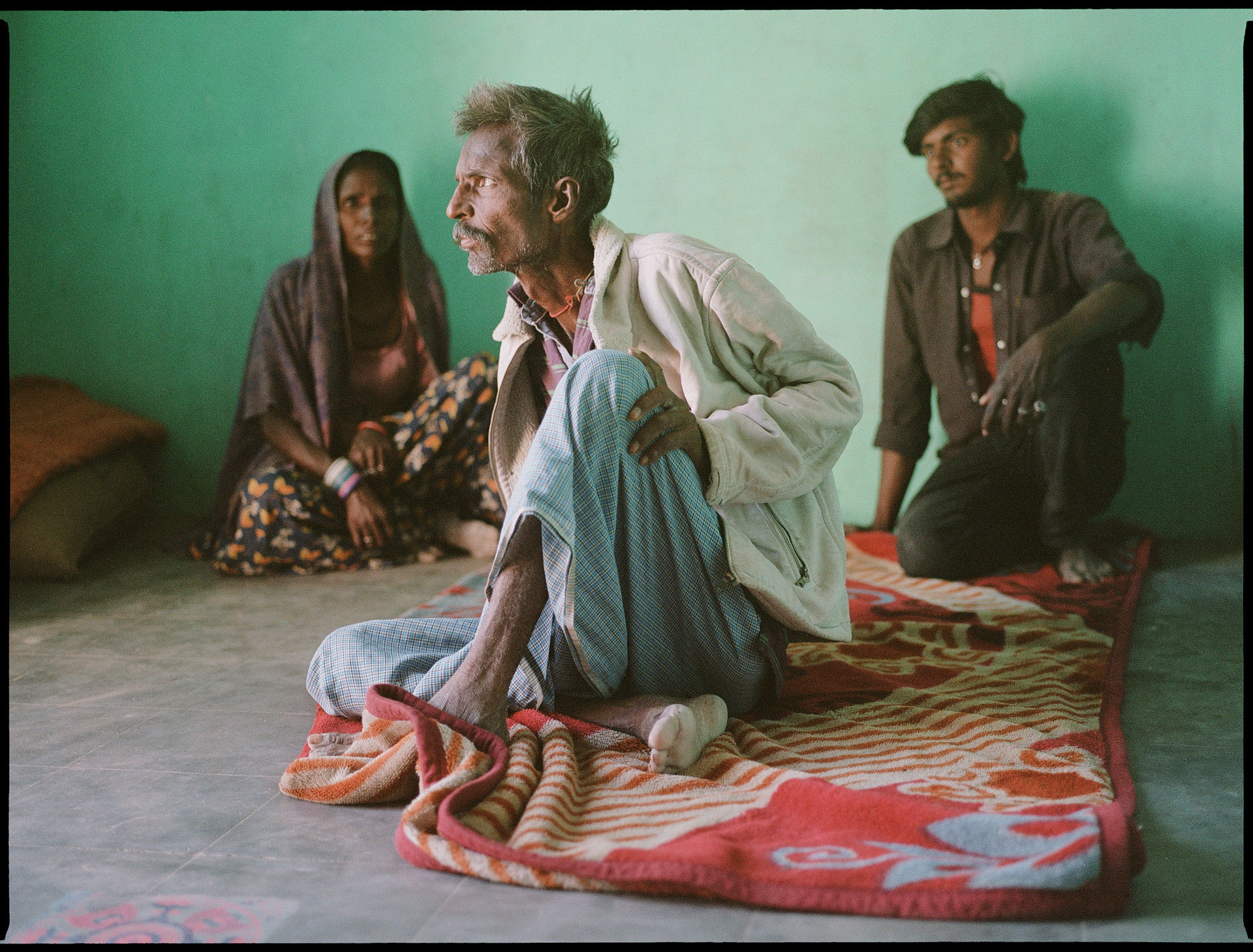
Shyam, his wife and son
It does really takes a village to raise each other.
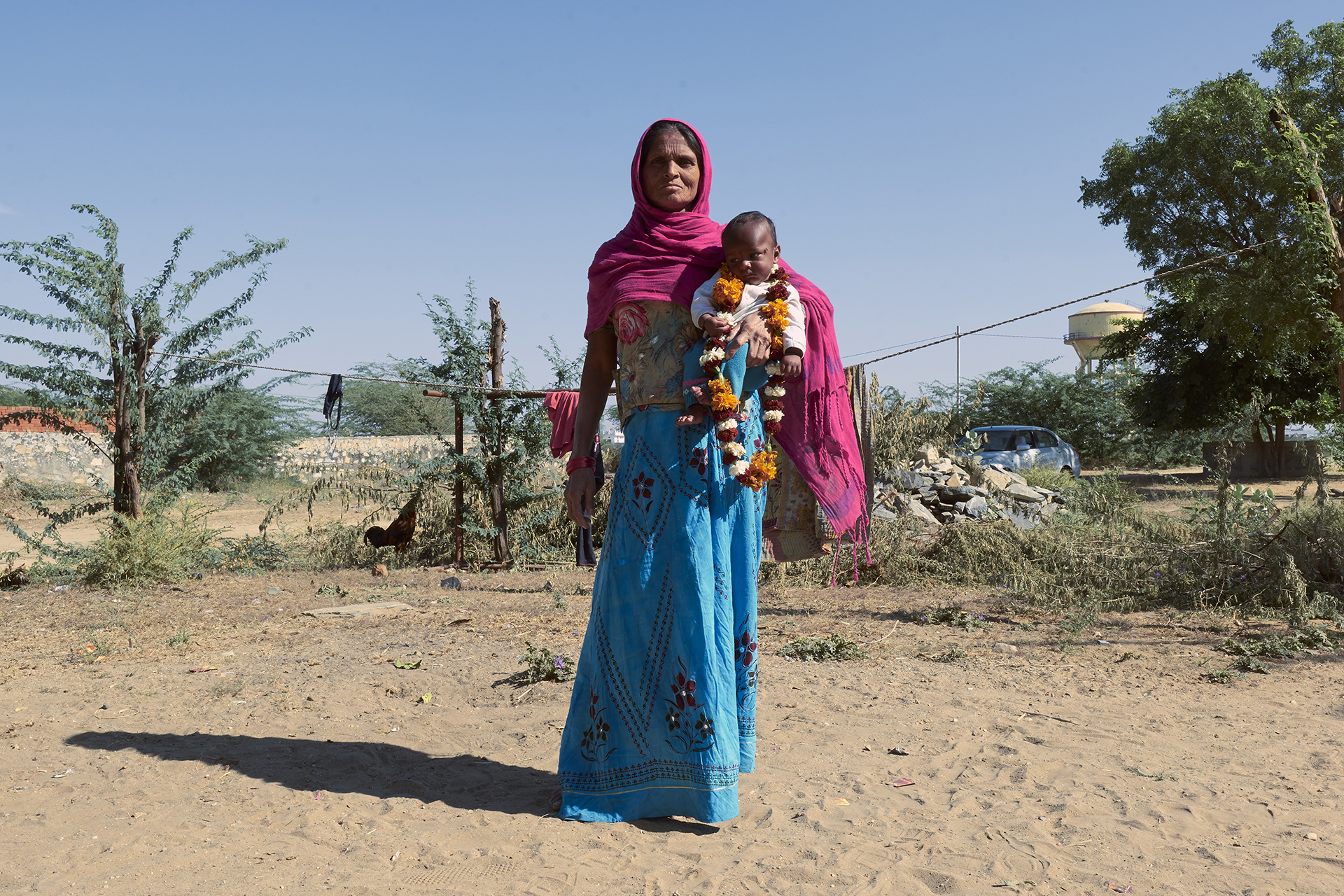
‘It takes a village to raise a child’, it’s a saying originated from the Nigerian Igbo culture. The Igbo's also name their children 'Nwa ora' which means child of the community.
RSKS Women Self-help Group, Village 2
•
•
In this remote village in Ajmer, all members of this small community grow flowers on their land and sell them in their village, in order to earn for their livelihood. One of the problems they face is that flowers have a short lifespan, which can turn a bad day at the flower market into a financial fiasco, as all crops end up being wasted. Also, their production is not always completely sufficient as the members struggle to earn enough money for the needed fertilizers.
RSKS often comes to this village to promote activities that teach women how to be financially stable, how to open a bank account and take on small loans with low interest rates. With RSKS acting as their sponsor, the members of the community have the motivation and support to fund and start new businesses or invest in agriculture.
RSKS often comes to this village to promote activities that teach women how to be financially stable, how to open a bank account and take on small loans with low interest rates. With RSKS acting as their sponsor, the members of the community have the motivation and support to fund and start new businesses or invest in agriculture.
‘RSKS team members came to my place and told us about the women self-help groups and the possibility of getting a loan from the bank. Now we use the money we have received from the bank to buy fertilizers and it has been a huge help in our dark times.’
Khushboo, 45
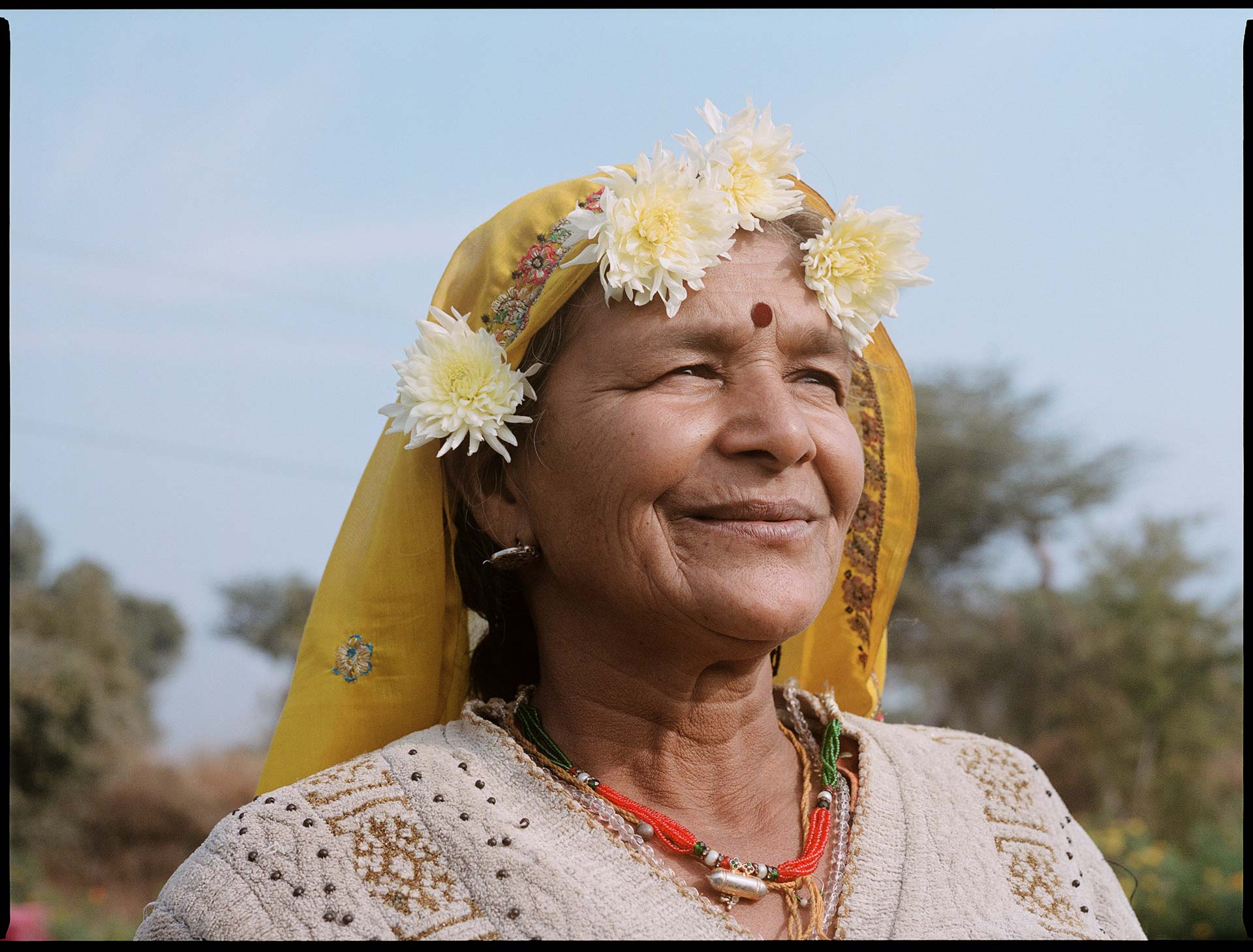
‘I would say the biggest problem in my caste is that all girls get married when they are only a child. Child marriage is very bad and it does not give us a choice for our future.
We should all help each other as this is the only way we can grow in this village.’
We should all help each other as this is the only way we can grow in this village.’
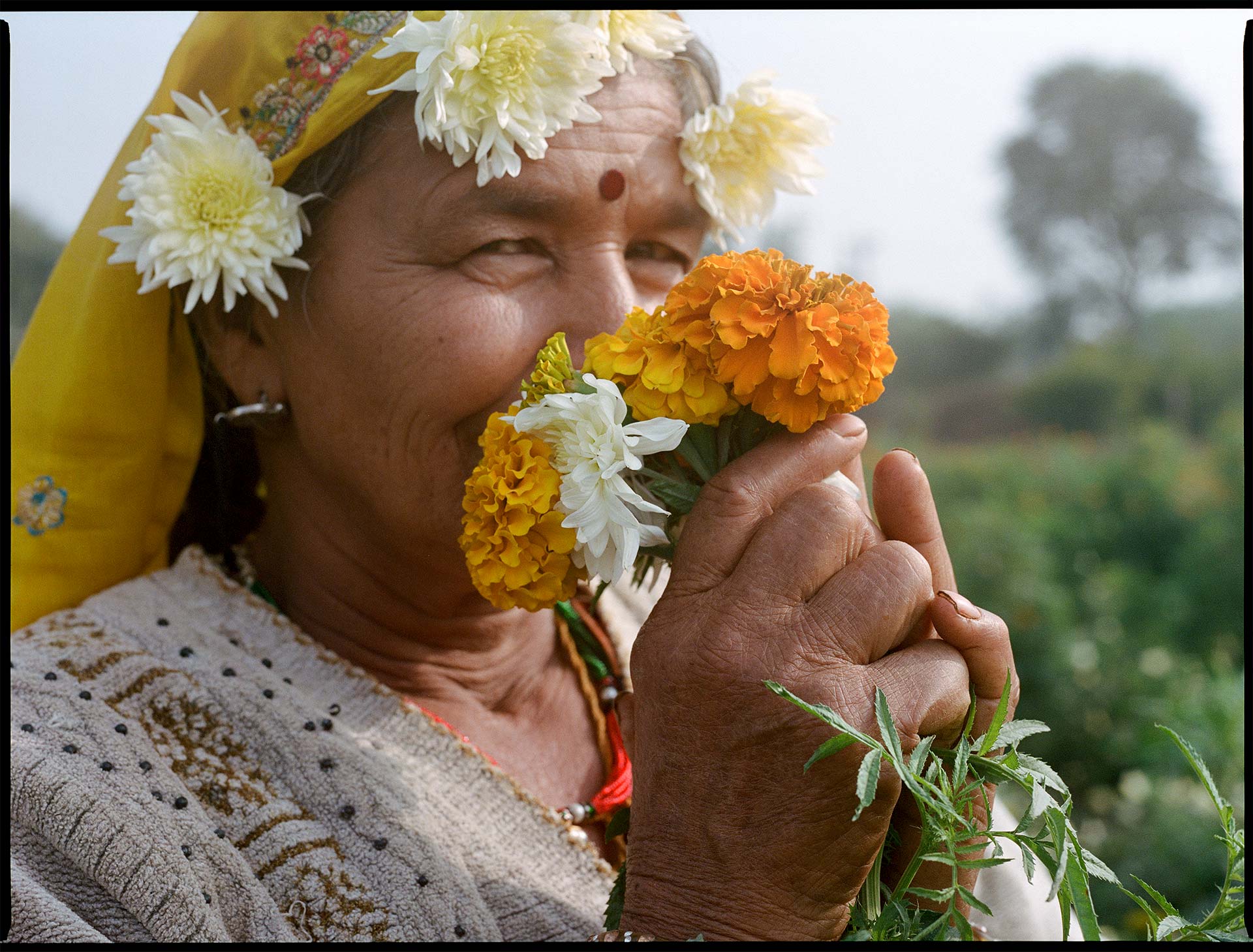
RSKS Udaan School for Dropout Women
•
While illiteracy amongst the female population have decreased in many states, it has actually increased in Rajasthan. Because of the patriarchal system that favours and privileges sons over daughters, a daughter’s ability to obtain a secondary and higher education remains a problem in India. So that is why RSKS have created schools for dropout women across many villages. So young-girls, women and their children, can obtain means to a healthy and prosperous livelihood.
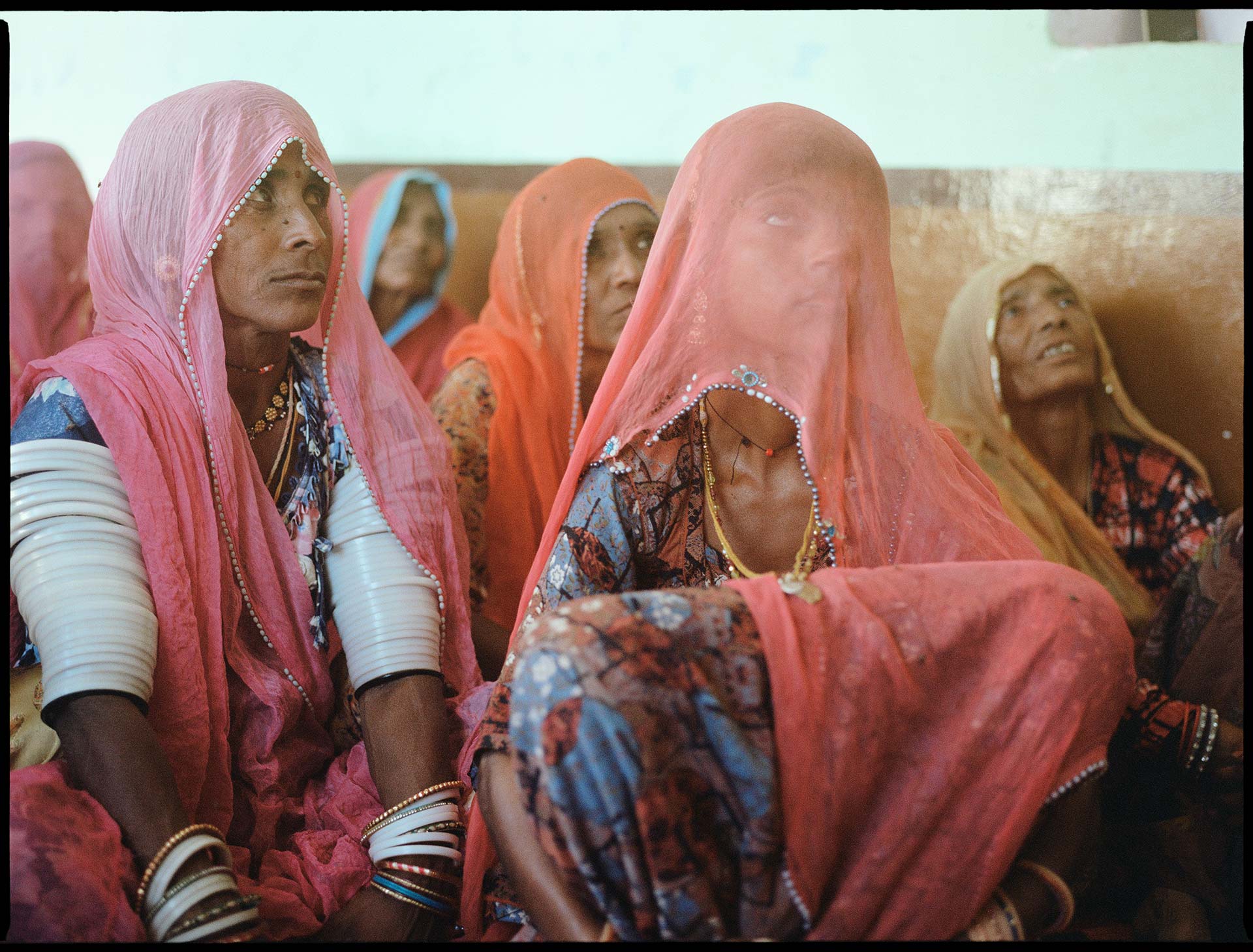 Students from Udaan School for Droptout Women
Students from Udaan School for Droptout Women
RSKS Pathshala School
•
‘I don’t have electricity and it is always dusty around here.
This is not a building or a house, is just a place where I am raising my children. It is not a good place for them. As a mother, this makes me very sad.’
Garvita, 45

Garvita is a mother of four. Sheweta, 11 is her only daughter.
Her husband suffers from paralysis and constant joint pains, rendering him unable to leave his house for work. Still, he raises and sells cattle from his own house so he can make a little bit of extra money. Because of his condition, Garvita, the only healthy source of income, is forced to work as a labourer in order to provide for her family.
‘It is impossible for us to educate all of our children, so we chose to educate the boys instead, as this will mean a better dowry in the future and consequently, bring money into our family.
Every child should be able to get access to education. I wish my children could have better parents, someone able to provide them with their needs. I have so many wishes but I can’t afford literally anything.’
Every child should be able to get access to education. I wish my children could have better parents, someone able to provide them with their needs. I have so many wishes but I can’t afford literally anything.’
‘I could die for my children
but I don’t want them to die
in front of me.’
Kajl, 35, mother of Pria, 12

‘I don’t have money, that is why I have built a hut, which I call my home. But now that is Winter, it is too cold to live here. Should I build a house or should I pay for my girl’s education?’
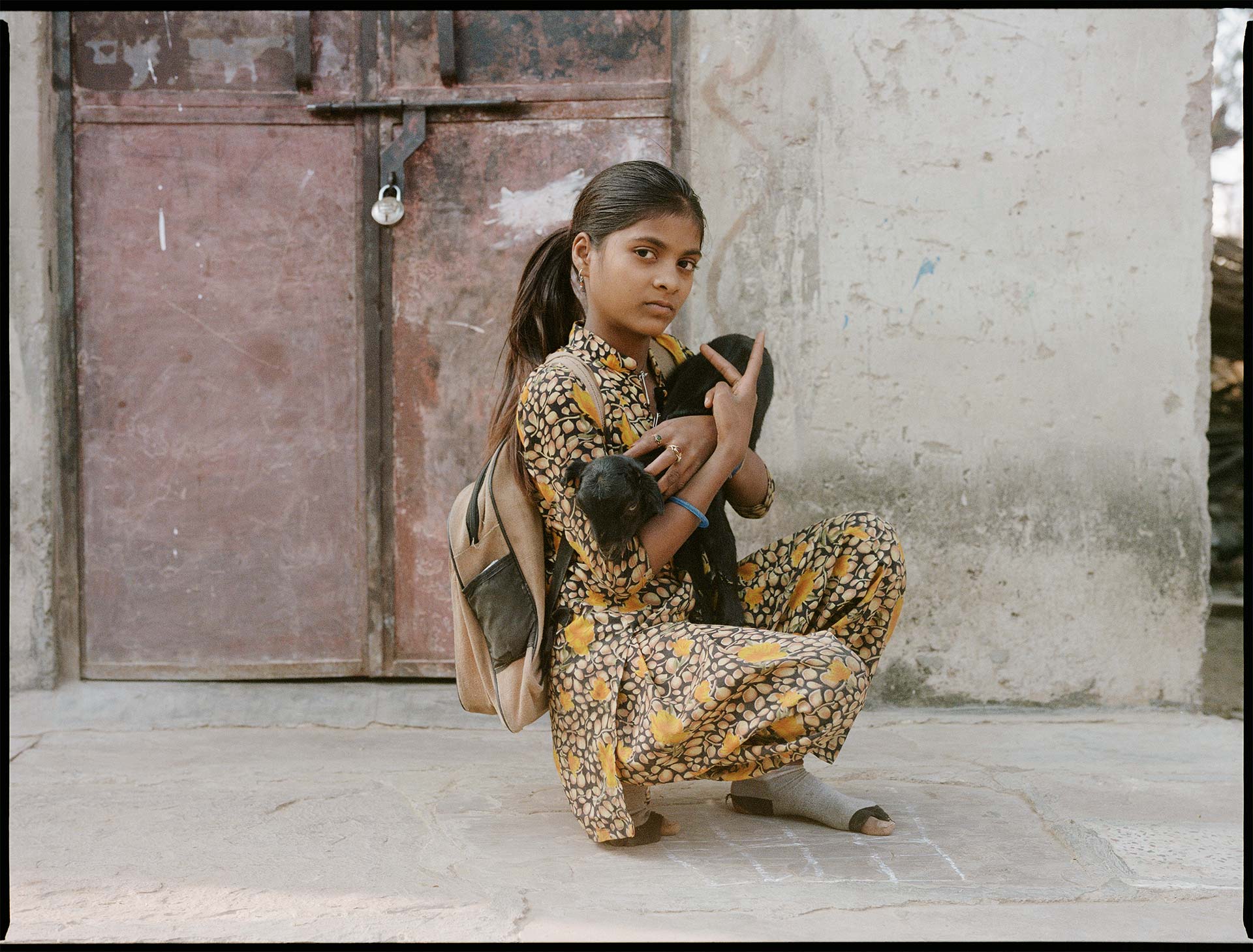
‘At night, I feel so alone but as long as I have my children, I have a reason to live for.’
Pria’s mum
‘In my life, I face many issues everyday. I am the only provider for my family, and I have five daughters. I am constantly thinking of ways in which to earn money so that I can raise my children.
At night, I feel so alone but as long as I have my children, I have a reason to live for. And this is why, whenever I am sick, I still go out to work. So that my children can have a proper meal.
At night, I feel so alone but as long as I have my children, I have a reason to live for. And this is why, whenever I am sick, I still go out to work. So that my children can have a proper meal.
I want a better life for my kids. I want to have a room where I can raise my children and live happily with them and with less worries. I want my children to be able to get an education so they don’t have to face the same difficulties in their life. Someone should look after us because I am so poor and unable to help myself.’